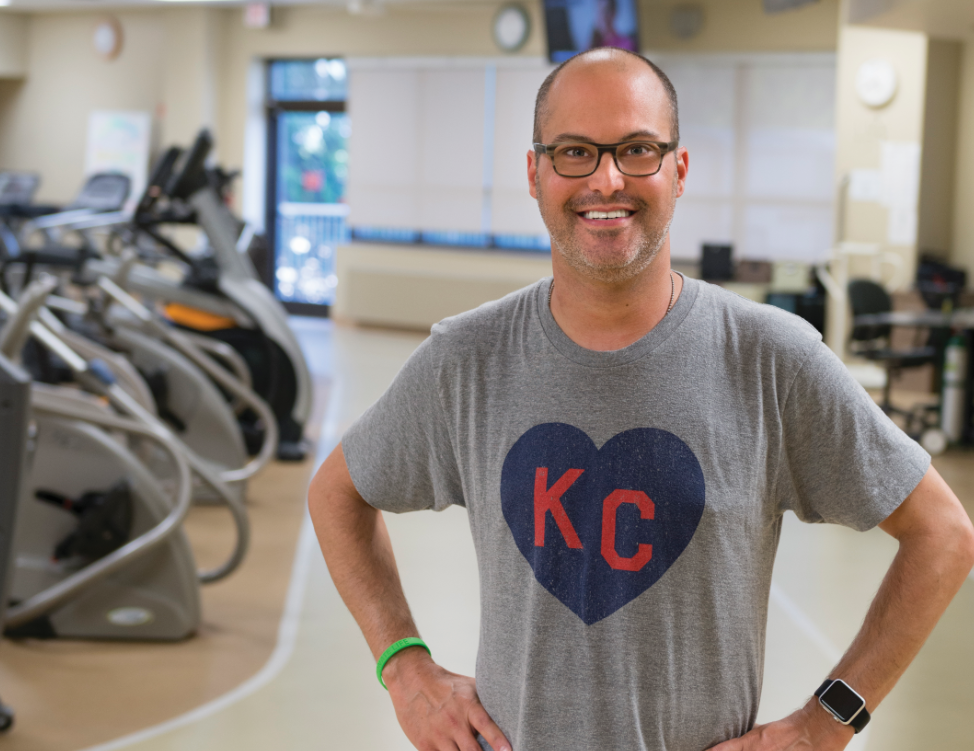Saint Luke's Mid America Heart Institute Transplant #745

“My heart was backwards,” Andrew said. “It was hooked up wrong. It pumped oxygenated blood through my lungs and circulated the non-oxygenated blood to the rest of my body.”
In 2017, Andrew received a heart transplant from Michael Borkon, MD, and his team at Saint Luke’s Mid America Heart Institute.
Saint Luke’s is the only nationally ranked adult heart transplant program within a 500-mile radius of Kansas City, and it performs an average of 40 transplants per year—more than twice the national average.
“There is proven research demonstrating that patients who undergo heart surgeries at higher volume centers experience better outcomes, and this is particularly true for transplants,” Dr. Borkon said. “We remain constantly prepared to handle the volume and the complex circumstances our patients bring to us.”
Andrew says it never seemed like he was in the hospital. Instead, he felt surrounded by friends—from the custodian to his nurses and physicians to fellow patients. They have stayed in touch, and the entire Widman family pays it forward by supporting others on their transplant journeys.
“Words can’t express how thankful I am,” he said. “Since the surgery, my family has supported the Heart Institute through giving to the Saint Luke’s Foundation. It is the least we can do to show our gratitude.”
The day after Andrew returned home from Saint Luke’s Hospital with his new heart, his wife, Vicki, drove him to the DMV. There, he ordered a personalized license plate that read simply “745” because he was Saint Luke’s 745th heart transplant recipient.
Saint Luke’s Mid America Heart Institute is one of the leading cardiovascular programs in the country. Its legacy of innovation began more than 35 years ago when it opened as the nation’s first heart hospital.
Since then, the Heart Institute has earned a worldwide reputation for excellence in the treatment of heart disease, including interventional cardiology, cardiovascular surgery, imaging, heart failure, transplant, heart disease prevention, women’s heart disease, electrophysiology, outcomes research, and health economics.
The generosity and vision of donors such as Andrew enable us to launch nationally recognized programs, purchase leading-edge medical technology, and enhance our commitment to education and research. Combined, these efforts contribute to our cardiovascular knowledge and ability to advance patient care.
Recent News
News
Media Coverage: Grandfather Grateful To Be Alive After Grandson’s Quick Thinking Saved His Life
Patient Stories
Roadside Heroics Lead One Grandfather to Lifesaving Care at Saint Luke’s Mid America Heart Institute
Patient Stories
A Team Effort Brings Patient Back to Life at Saint Luke’s Mid America Heart Institute
News
Higher Omega-3 Levels Associated with Improved Mental Health
Article
Health News You Can Use: Importance of Lung Cancer Screenings
News